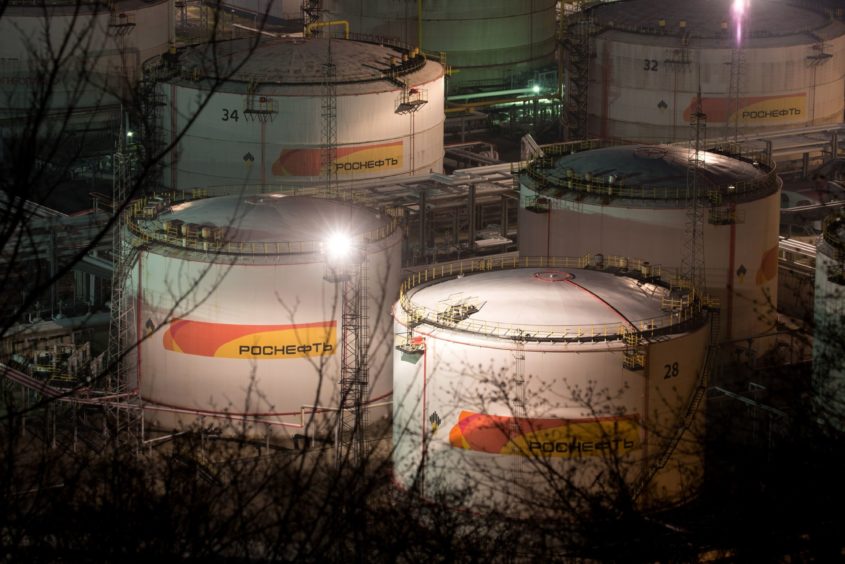
Russian oil and gas producer Rosneft PJSC repaid a $2 billion bond amid concern about such payments because of government restrictions introduced in response to sanctions, according to people familiar with the matter.
The bondholders received the cash, including accrued interest, in dollars, the people said, declining to be identified because they aren’t authorized to speak publicly about the payment. The company didn’t reply to several requests for comment.
The settlement was thrown into question over the weekend, when President Vladimir Putin issued a decree that payments to bondholders from so-called hostile nations should only be made in rubles. It’s possible that the payment was transferred before the decree.
On Monday, energy giant Gazprom PJSC repaid a $1.3 billion bond in dollars, though people with knowledge of the matter said that process had started before the new rules.
The Rosneft notes, issued by Rosneft International Finance, an Ireland-incorporated entity, matured on Sunday, but the payment was rescheduled due to public holidays in Russia on Monday and Tuesday.
Putin’s decree stated that Russian debtors need to open “Type C” accounts in Russia on behalf of their foreign creditors to pay them in rubles. Creditors from countries that haven’t imposed sanctions against Russia, such as China, may be repaid in the currency the debt was issued with special permission. It’s unclear, however, how the new system will work.
The sanctions on Russia were imposed after it invaded Ukraine late last month, and the financial and economic pressure continues to intensify. The UK froze the assets of Igor Sechin, Rosneft’s chief executive officer, on Thursday as it announced a fresh wave of measures against wealthy Russians. BP has already announced that it will quit its stake in Rosneft, a move that could cost it as much as $25 billion.
On Tuesday, US President Joe Biden said the country will ban imports of Russian fossil fuels, including oil, while the U.K. announced a ban on oil imports but will continue to allow natural gas and coal from the country.
A day earlier, Russian Deputy Prime Minister Alexander Novak said that the country could cut natural gas supplies to Europe via the Nord Stream 1 pipeline to “mirror” the sanctions imposed over the invasion of Ukraine.